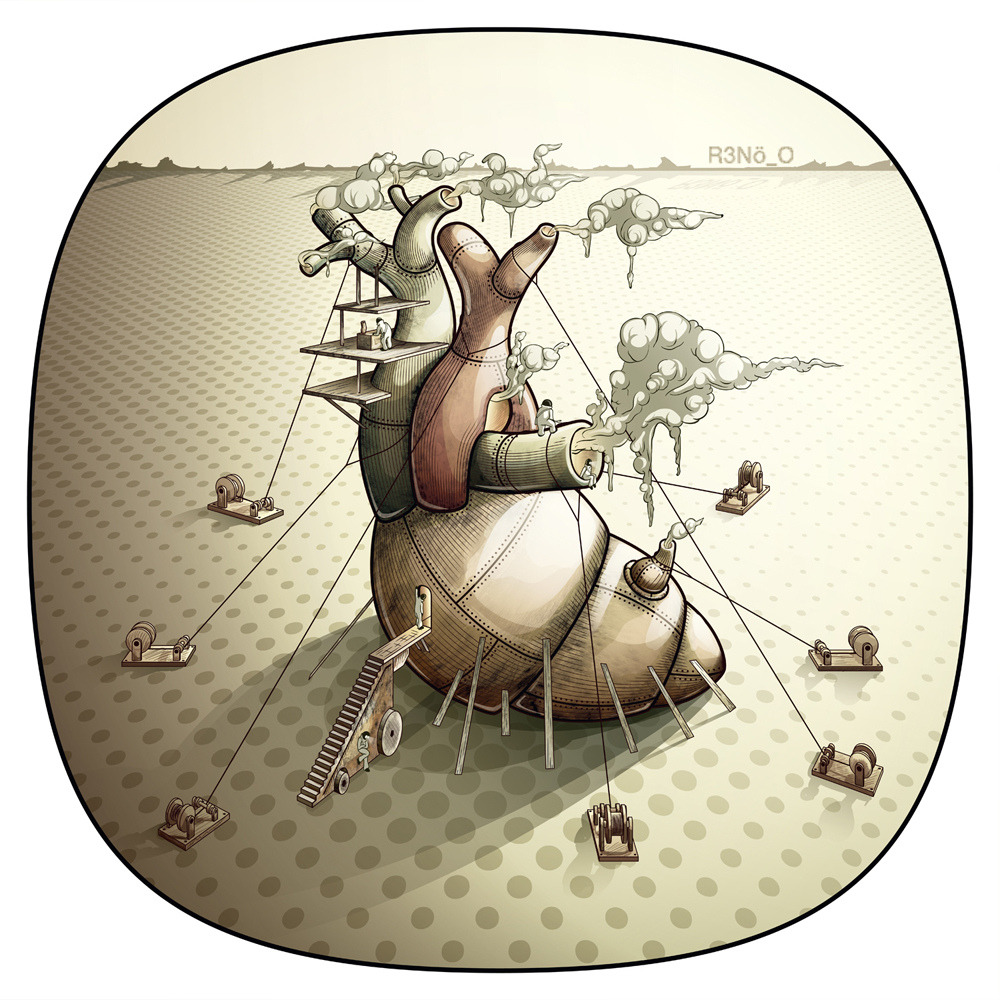Each of us, the drivers, knows what it is to feel sleepy on the road after eating. Each of us knows, that it can cause [microsleeps], with possible fatal consequences. But not only microsleeps can cause an accident. While being dizzy, your reaction time goes down and braking too late is not safe at all.
So I've asked my girlfriend, a medical doctor, what exactly happens in our bodies through this time. Is the claim "all the blood from the brain goes to stomach" a myth or true ? Why is it happening and how we can prevent ? We asked also two more doctors we know, an internist and a specialist in methabolism and consulted some books.
It is a quite complicated process, so the following lines are a version as simplified as possible.
There are two main reasons for feeling dizzy : hypoglycaemia, (the lack of carbs, sacharides) and hypotension (low blood pressure).
Postprandial hypoglycaemia (lack of carbohydrates after a meal)
The most essential things from which we gather energy are sacharides (carbs, sugars). The mechanism how we gather energy is, that our body creates insuline which converts sacharides in our cells to energy.
There are two types of sacharides : the "fast" monosacharides (the simpler ones) and the "slow" polysacharides (merged monosacharides).
The "fast" monosacharides are causing a fast insuline reaction. All carbs are are fast digested, converted into energy, just a fraction stays in the blood, so the body asks for more carbs. If it doesn't get it, the consequence is fast drop of sugar level, we get hypoglycaemic, get hungry and important for our context - sleepy.
You can get into a deadlock - a "sugar shot" causes fast insuline reaction, lots of new but short energy, than sugar level drop and sleepiness. Than you fulill your monosacharide demand and the process repeats itself.
In contrast the "slow" polysacharides are digested slower and the whole process is less intensive as you don't get an intense insuline shot. The sugar level in the blood drops slower, we get sleepy later as well as the body requires more sugar later.
This is whay all advises says not eating food containing sugar - "fast" monosacharides such as sweets, ice cream, chocolate, sweet drinks etc. Instead they recommend eating food with "slow" sacharides, such as whole grain food like whole grain bread, rice, noodles, pastries. For drinking is recommended just water.
How to find out what to eat ? The Glycemic Index (GI), known to people with diabetes or overweight, tells more. Recommended is food with low or middle GI. You can find which food it is exactly in this table or also this one.
Postprandial hypotension (low blood pressure after meal)
is the second cause for feeling dizzy after a meal. The Harvard Health Publications as well as PubMed.gov, a very trusted source, are saying, that when you eat, your digestive system needs more blood, rerouted from other parts. But in some people this mechanism doesn't work as it should, so the blood pressure drops. The result is dizziness.
So how to prevent this ? Drink water before meal. The meal shouldn't be too large. Fewer rapidly digested carbs, as described sooner. The bottom of the blood pressure drop is 30 to 60 minutes. Let drive someone else through that time or make a break.
If some of the readers can add valuable information to this, feel free to do it in the comments section.
Have a good ride.
picture credits : Rene Martinez, Countylemonade





No comments:
Post a Comment